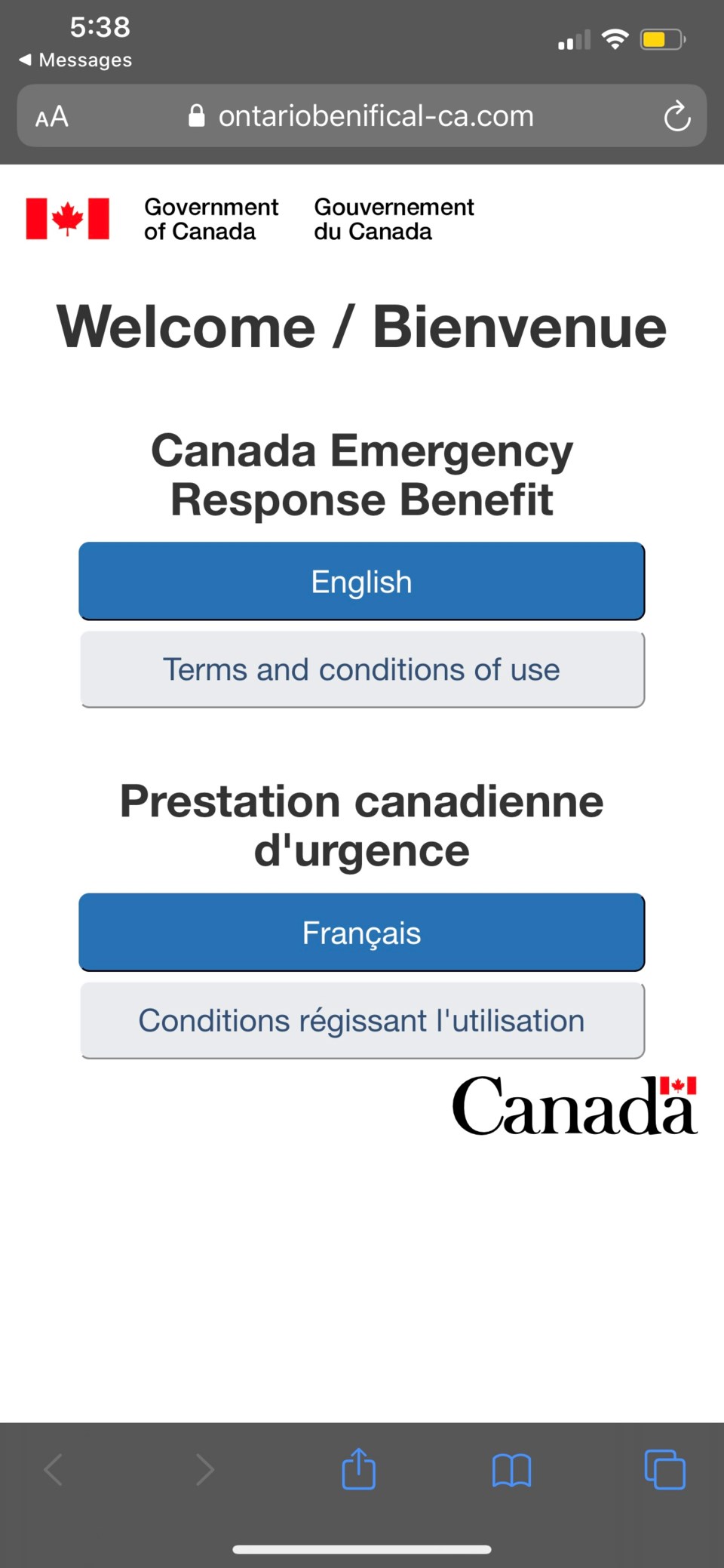Ottawa is warning Canadians to be aware of online scammers taking advantage of their pandemic anxieties through relief programs, dubious messaging and other forms.
“With the launch of (Emergency Response Benefit –CERB), we have seen scammers seek to prey on Canadians anxieties during this time of crisis. For example, we have identified websites that have attempted to spoof the CERB application website and scammers contacting Canadians by text message or other means,’ Canada Revenue Agency (CRA) spokesperson Etienne Biram said.
A statement from the Canadian Centre for Cyber Security (CCCS) said it has had 951 reports relating to COVID-19 fraud. Some 657 of these reports are related to phishing scams.
A May 14 report from California-based global online security firm Proofpoint (NASDAQ:PFPT) said fake application templates appeared for the CERB and the Canada Revenue Agency COVID-19 Financial Support pages.
Such spoofs and scams attempt to obtain people’s financial information and social insurance numbers.
Scams purporting to be connected to the CERB may have many variations, but all appear to have the goal of duping Canadians into providing personal information under the guise of helping them claim the benefit, Biram said.
“The CRA is not contacting Canadians to claim CERB,” Biram said. “Canadians must apply for the credit themselves. Simply put, any direct communication Canadians receive about applying for the CERB is a scam.”
Biram said scammers adapt their tactics over time seemingly based on what gets the best results.
“We have also seen that they have, regrettably, routinely used the name of the CRA to attempt to bilk honest Canadians out of their hard earned money and their personal information. This is because they know that Canadians take interactions with the CRA seriously, and pride themselves on being taxpayers in good standing.
Biram said CRA does at times contact taxpayers by telephone to advise them of debts.
“As Canada’s tax administration, we have a responsibility to collect on outstanding amounts,” Biram said. “However, the CRA will never demand immediate payment, or use threatening language.”
“We have a disruption program that aims to get fraud websites shut down. In the case of spoofed government sites the CCCS also plays a significant role with public reporting showing upwards of 1500 sites being taking down,” the CCS statement said.



